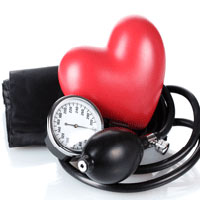Are 80% of Heart Attacks and Strokes Preventable?
January 11, 2019 The Centers for Disease Control and Prevention (CDC) are urging people to more seriously prioritize their health, especially since the agency’s new numbers on heart attacks and strokes were just released. The findings indicate that 80% of the heart attacks and strokes happening every year are avoidable – and largely by making simple lifestyle changes, like quitting smoking cigarettes or becoming physically active.
The Centers for Disease Control and Prevention (CDC) are urging people to more seriously prioritize their health, especially since the agency’s new numbers on heart attacks and strokes were just released. The findings indicate that 80% of the heart attacks and strokes happening every year are avoidable – and largely by making simple lifestyle changes, like quitting smoking cigarettes or becoming physically active.
What are Strokes and Heart Attacks?
Heart attacks happen when there is a blockage or shortage of blood flow to the heart, which is usually caused by a blood clot. More often than not, heart attacks are the result of coronary heart disease, or CHD. CHD is a dangerous and deadly cardiovascular disease that causes a waxy substance to develop in the coronary arteries, limiting blood flow to the surrounding area.
Instead of a heart attack, a stroke is the brain’s version of a similar event. This means that strokes happen when oxygen to the brain gets restricted or completely cut off. According to the American Stroke Association (ASA), there are about 800,000 new or recurrent stroke cases annually, while the CDC estimates that roughly the same number of heart attacks happens every year.
The CDC’s Findings
According to the CDC, in a single year there are 2.2 million hospitalizations and 415,000 deaths related to heart attacks and strokes. In fact, strokes are the number one cause of serious long-term disabilities in the United States. The CDC’s report confirms that some of the most effective – yet also the most commonly overlooked or ignored – opportunities for treating cardiovascular disease and preventing disabling and deadly strokes and heart attacks include:
- Taking aspirin when prescribed by a doctor;
- Failing to take statins as prescribed (cholesterol management medications), and:
- Being physically active
Researchers behind the CDC’s report say that the cost of certain preventative medications – like statins – has gone down drastically, and that they are also more easily accessible today than in the past. Researchers also say that statins, however, can be difficult to get people without cardiac symptoms to take, since they often claim they “feel fine”. People who are at an elevated risk for strokes and heart attacks because of high blood pressure and blood cholesterol levels may “feel fine”, but research shows that medications like statins greatly reduce their chances for experiencing fatal cardiac events. In fact, reducing a person’s systolic blood pressure by just 20 points (e.g. from 140 to 120) actually reduces their overall risk of mortality from heart disease, heart attack, and stroke by as much as 50%.
Who is at Risk for Cardiovascular Disease, Heart Attacks, and Strokes?
According to the CDC, warning signs of cardiovascular disease are commonly ignored or misdiagnosed in African Americans and women in particular. This means that both these groups need to be especially vigilant about reporting cardiac health concerns to healthcare professionals. Other risk factors for complications from heart attacks and strokes include:
- Cigarette smokers or people who use other tobacco products;
- Diabetes;
- Having an unhealthy diet (e.g. high in trans fats, saturated fats, and cholesterol);
- Obesity, and:
- Age: everyone’s risk for heart disease increases as they age
The good news is that the CDC’s comprehensive report shows that hundreds of thousands of long-term disability causing and fatal heart attacks and strokes can actually be avoided. If you or your loved ones are higher risk for cardiovascular disease, it is critical to talk to your doctor and discuss preventative options. If you have more questions, please contact a representative at our firm directly who can help you.
Philadelphia Personal Injury Lawyers at Galfand Berger, LLP Representing Injured Individuals Since 1947
If you were a victim of medical negligence, we are happy to answer your questions and have one of our Philadelphia personal injury lawyers review your case for free. With offices located in Philadelphia, Bethlehem, Lancaster, and Reading, Galfand Berger serves clients throughout Pennsylvania and New Jersey. To schedule a consultation, call us at 800-222-8792 or complete our online contact form.
 Google Screened
Google Screened
